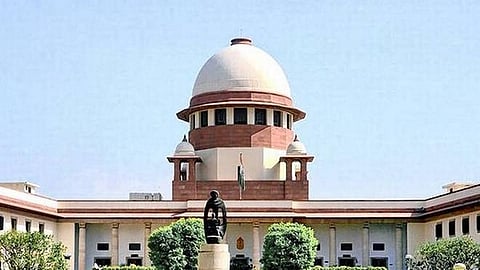

CHENNAI: Close to a decade has passed since the Tamil Nadu government came out with a new amnesty scheme to regularise unauthorised constructions in the state, but it is yet see the light of day. Now, the state is seeking legal remedy in the Supreme Court by filing a counter to a special leave petition (SLP) which was filed by Consumer Action Group, a not-for-profit, in 2019 challenging the Madras High Court order of February 10, 2014, official sources said.
In 2014, the high court following hearing in separate cases, upheld the constitutional validity of Section 113-C, an amendment under the Tamil Nadu Town and Country Planning Act, 1971. However, it struck down the guidelines. The government then formed a committee under former Madras High Court judge S Rajeshwaran, who framed fresh guidelines, and the scheme was introduced in 2017 by issuing a Government Order amending the Act to grant amnesty to buildings built before 2007.
Under the new regularisation scheme, building owners would be allowed to rectify violations to avoid lock-and-seal by the government. However, the residents will have to pay regularisation charges based on the size, guideline value and location of the buildings. Initially, there were only a few applications for the new scheme due to higher charges, but the scheme hit a hurdle in 2019 when the high court hearing the case by the CAG struck down the Government Order on the new regularisation scheme stating it is violative of the Supreme Court order which considered the grant of regularisation as a one-time measure. The state had earlier introduced an amnesty scheme to regularise unauthorised buildings built on or before 1999 . The constitutional validity was upheld by the Supreme Court on August 23, 2006.
According to sources, the counter filed by the state earlier this month highlighted that 17 years ago there were no provisions to take action against deviated and unauthorised constructions. The state has now come out with various provisions, including the Tamil Nadu Combined Development and Building Rules, 2019, it added.
The state also highlighted that to assess the current status of deviated constructions, CMDA had taken measures to assess the existing scenario within Chennai by conducting a sample survey using drones and unmanned aerial vehicle technology.
The government also highlighted that any punitive enforcement action against buildings would put undue hardship on the common man, essentially the middle class and lower income group, and render many homeless. It also urged the Supreme Court to allow the state to continue with the regularisation scheme.